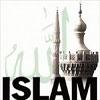
3. Prophethood
God created mankind to serve Him (LI:56). He endowed man with faculties and freedom of action and out of His Grace (LUTF) and Justice sent Prophets to instruct and guide mankind. No nation or community was left without such guidance. (X:47 and XVI:36).
Some of these prophets were sent with Divine Revelation, scripture and miracles. The first Prophet was Adam and the last was Muhammad, the Seal of Prophets (XXX:40).
While Quraan mentions only twenty-five most prominent of the prophets it also states that there were many more whose names have not been revealed in the Quraan. (XL:78).
Muslims believe that there have been 124,000 prophets. Amongst those specifically mentioned are Adam, Enoch, Noah, Abraham, Ishmael, Issac, Lot, Jacob, Joseph, Job, Moses, Aaron, Ezekiel, David, Solomon, Jonah, Zachariah, John the Baptist, Jesus and Muhammad.
Five of these prophets brought new codes of law. These were Noah, Abraham, Moses, Jesus and Muhammad. These are called the "ulu l-azm" prophets meaning those of great constancy.
Quraan mentions five divine books.
a. The Book of Abraham, sometimes referred as the Booklet (LXXXVII:19).
b. The Psalms given to David (IV:63 and XVII:55).
c. The Torah granted to Moses (II:87, III:3 & 4, VI:91 & 154).
d. The Evangel or the Gospel revealed to Jesus (V:46).
e. The Quraan revealed to Muhammad.
A Muslim must believe in all the Holy Books. (II:4 & 285). He must also believe in all the prophets. (IV:152).
The Shiahs also believe that all the prophets were infallible and sinless. Not all the Sunnis subscribe to this belief.
source : sibtayn













